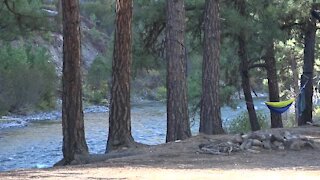Human impacts on Biodiversity | Ecology and Environment | Biology |
Biodiversity is the variety of life.
There are thought to be 8.7 million species on planet Earth. And, as we saw in this video, biodiversity is of utmost importance to humans.
The loss of one key species can have a detrimental impact on many levels; from other species of animals to plants to the physical environment, as shown by wolves.
Human activities are reducing biodiversity. Our future depends upon maintaining a good level of biodiversity, and so we need to start taking measures to try and stop the reduction.
In this video we are going to look at how humans are negatively impacting biodiversity.
As the world population has grown from 1.5 billion in 1900 to nearly 7.5 billion people today, unsurprisingly the land use has changed.
Habitats have been destroyed in favour of agriculture, forestry, fishing, urbanisation and manufacturing. Unsurprisingly, habitat loss has greatly reduced the species richness. Habitat fragmentation has also meant that populations have been split into smaller subunits, which then when faced with challenging circumstances have not been able to adapt and survive.
After habitat loss, overharvesting has had a huge effect on biodiversity. Humans historically exploit plant and animal species for short-term profit. If a resource is profitable, we develop more efficient methods of harvesting it, inevitably depleting the resource. As is currently happening with fishing and logging. The exploited species then needs protection. The difficulty is that the demand then outstrips the supply, and so the resource value rises. This increases the incentive to extract the resource and leads to the final collapse of the population. As happened with whales, elephants, spotted cats, cod, tuna and many more species.
Human activities are polluting the air and water.
Toxic discharge into the water from industrial processes unsurprisingly has a negative effect on the local aquatic species by killing, weakening or affecting their ability to reproduce.
Phosphorous and nitrogen in fertilisers run-off agricultural fields and pass into rivers. These surplus nutrients cause algae to bloom, which then starves other aquatic species of oxygen and light, causing them to die.
Acid rain is one consequence of humans polluting the air. This causes lakes and water bodies to become more acidic, killing off fish, molluscs, amphibians and many other species.
-
 2:03
2:03
KMGH
3 years agoThe Human gRace Project: Exercise impacts life expectancy
25 -
 1:58
1:58
KIVI
3 years agoBoise National Forest experiences substantial human impacts this summer
27 -
 2:10
2:10
WFTX
3 years agoBeyond the environment: how blue green algae impacts our health and our property values
11 -
 LIVE
LIVE
Wendy Bell Radio
5 hours agoTrump's Play for New York
13,522 watching -
 LIVE
LIVE
Matt Kohrs
13 hours agoTrump BODIES Biden, The Fall of Memes & The Week Ahead || The MK Show
2,138 watching -
LIVE
jeffahern
2 hours agoMonday Madnes with Jeff Ahern (6AM Pacific)
880 watching -
 29:57
29:57
Cody and Kellie
16 hours agoWhy a Truck Camper? Honest Six Month Review, Living in a Truck Camper
20.5K23 -
 9:50
9:50
DepressedGinger
17 hours agoBiden *DENIES* polls, somehow thinks he's beating Trump
29.1K74 -
 6:42
6:42
Vehicles Unlimited
20 hours ago2024 Chevrolet Trax Activ // The Best Compact SUV This Year?
33.3K6 -
 29:54
29:54
TampaAerialMedia
21 hours agoMiami Travel Guide - Downtown, Key Biscayne, Coral Gables
31.9K12